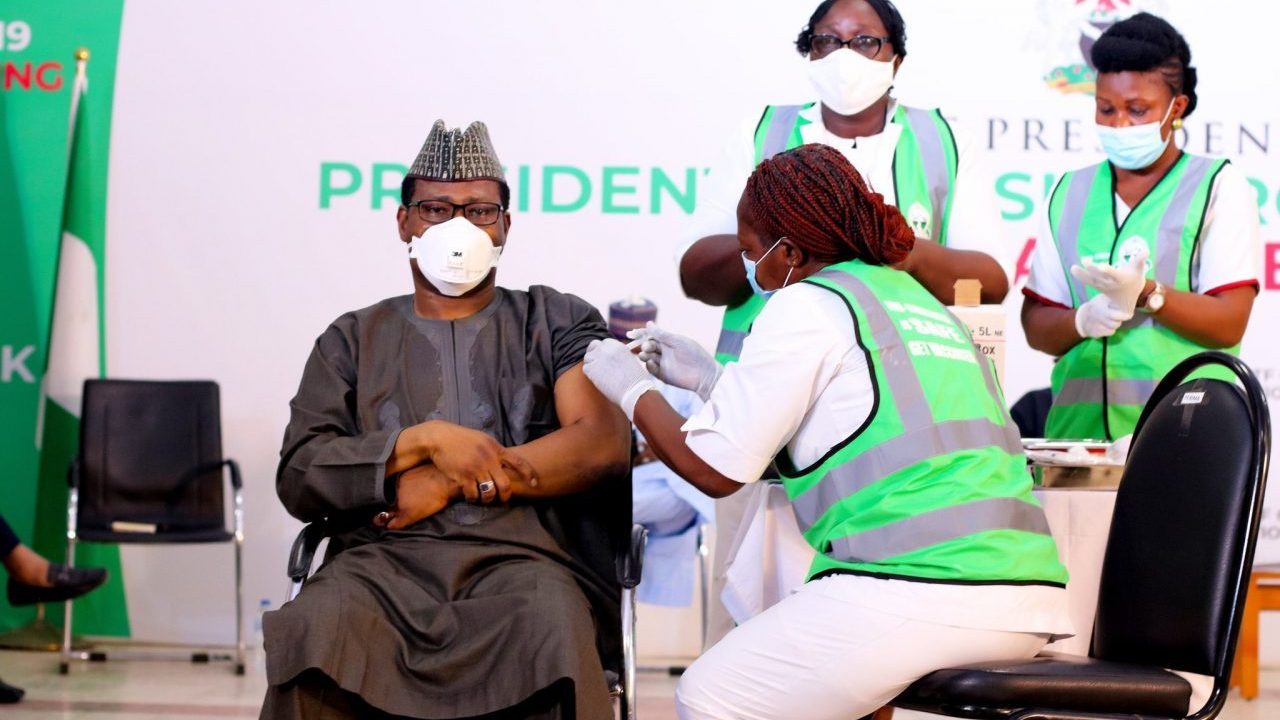
The Federal Government is set to begin the second phase of the Coronavirus Disease (COVID-19) vaccination today after taking delivery of 177,600 Janssen (Johnson & Johnson) vaccines on August 12, 2021 in Abuja.
Received through the National Primary Health Care Development Agency (NPHCDA), this marks the arrival of the first COVID-19 vaccines procured through the African Union (AU).
The phase will see the country administering the Moderna vaccine doses donated by the United States of America (U.S.A.).
Recall that the rollout was postponed from August 10 to August 16, because of administrative issues.
Nigeria had received 4,800,000 doses of the Moderna vaccine, which were taken to the National Agency for Food and Drug Administration and Control (NAFDAC) for approval.
NAFDAC said the doses of Moderna vaccine donated to the country by the U.S. were “safe and meant to save lives.”
Meanwhile, the Executive Director of NPHCDA, Dr. Faisal Shuaib, said: “The arrival of these vaccines will be yet another step in the battle against the COVID-19 pandemic.”
According to him, the shipment is the first batch of the vaccine from AU, which would be received in batches monthly until 29.8 million doses are completed.
On the advantage of the Janssen COVID-19 vaccine, the ED said: “The single dose vaccine will be a viable tool to interrupt the spread of the pandemic, especially in the rural areas, riverine and hard-to-reach places. It would be more beneficial for Nigeria, given its huge difficult terrains, coupled with weak systems for keeping track of people and logistics involved for delivering the second doses.”
The Janssen COVID-19 vaccine is stored between 2°C and 8°C (36°F and 46°F): Storage unit temperatures must be monitored regularly, checked and recorded at the beginning of each workday to determine if any excursions occurred since the last temperature check.
Taking partners and journalists round the National Strategic Cold Store, where the vaccines were kept, Shuaib said the country had proven, with the storage of the AstraZeneca vaccine, that “it has the right equipment to adequately store the Janssen vaccine, which requires same storage temperature.”
In his remark, the World Health Organisation (WHO) Country Representative, Dr. Walter Mulombo, commended the effort of the Nigerian government in containing the spread of the pandemic and making available vaccine for the populace.
Mulombo described the arrival is a symbolic landmark in Nigeria’s widely acclaimed successful response to COVID-19.
Pledging WHO’s commitment to the country in reaching its targeted population with safe and effective vaccines, Mulombo said that as the only single dose COVID-19 vaccine approved for use to date, Janssen is an important tool for accessing hard-to-reach populations, thus playing a key role in preventing infections and reducing deaths across Nigeria.
On August 1, 2021, Nigeria received its second batch of COVID-19 vaccines under the COVAX Facility. The U.S. donated over four million doses of the Moderna COVID-19 vaccine. This is an important step in the fight against COVID-19 as the country intensifies efforts to battle the current third wave of infections.
MEANWHILE, the Ministry of Health of Cote d’Ivoire, yesterday, confirmed the country’s first case of Ebola since 1994. This came after the Institut Pasteur in Cote d’Ivoire confirmed the Ebola Virus Disease (EVD) in samples collected from a patient, who was hospitalised in the commercial capital of Abidjan, after arriving from Guinea.
Initial investigations found that the patient had travelled to Cote d’Ivoire by road and arrived Abidjan on August 12. The patient was admitted to a hospital after experiencing a fever and is receiving treatment.
Guinea experienced a four-month long Ebola outbreak, which was declared over on the June 19, 2021. There is no indication that the current case in Cote d’Ivoire is linked to the earlier outbreak in Guinea. Further investigation and genomic sequencing will identify the strain and determine if there is a connection between the two outbreaks.



